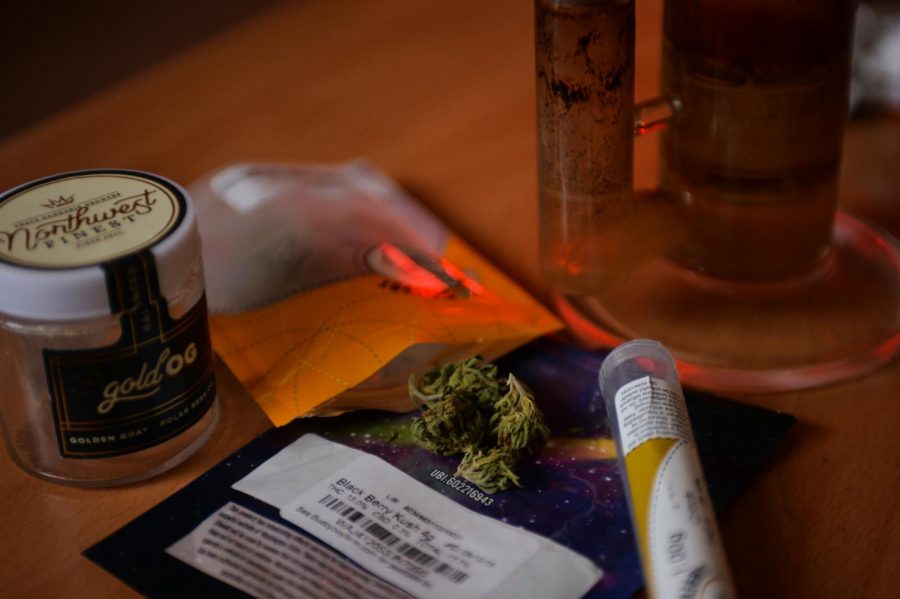Keep the cannabis industry growing in Pullman
Marijuana facilities may no longer be built in Whitman County, moratorium damages economy more than it helps
ZACH RUBIO | EVERGREEN PHOTO ILLUSTRATION
Excised marijuana products are a great revenue source for the Washington government, though residents of Whitman County are concerned over the impact it will have on their area if further developments are allowed. These concerns have led to a possible moratorium.
March 28, 2019
Throughout the past month, lawmakers and citizens have discussed the possibility of officially halting the construction of future cannabis-related facilities.
If put into effect, this would halt production and planning for any new grow-house, dispensary, or research facility within Whitman County. The growth of the cannabis industry in Whitman County comes with multitudes of benefits for both the state government and its citizens.
When cannabis was legalized in Washington in 2012, the financial benefits were almost immediate. Allowing the Washington State Liquor and Cannabis Control Board to regulate and tax the sales and production of cannabis, the state essentially created another source of government income and tax revenue. In 2017 alone, the State Treasury Department reported $315 million in tax revenue from the cannabis excise tax.
In addition to tax revenues, the job market in legal states benefited from the legalization of cannabis. David, a former dispensary owner who has asked to keep his last name confidential, is one of many who profited from these new jobs.
“The cannabis industry has created hundreds of thousands of full-time jobs since legalization in 2013,” David said. “[It] has the potential to lower the national unemployment rate significantly.”
Pullman is already home to six different marijuana dispensaries, proof that marijuana is a growing market here. As of 2017, 33,354 people live in the city, including university students. For a city of Pullman’s size to have six dispensaries clearly shows high demand for recreational cannabis in the city, as well as throughout Whitman County.
During a Whitman County commissioners’ meeting, the commissioners approved the moratorium on further cannabis developments for a cannabis-growing and processing operation on Country Club Road. Concerned citizens opposed the new facility, citing possible issues with smell, difficulty of enforcement, possible contamination of the neighboring dairy farm and a change in culture surrounding marijuana.
However, with a younger population in Pullman, this change of culture is inevitable. Cannabis still carries a lot of stigma with older demographics — only 39 percent of people born from 1922-1945 support legalizing marijuana, whereas 74 percent of millennials support federal legalization, according to the Pew Research Center.
The transition to a more marijuana-friendly country is already well on its way. Allowing it to take hold in Pullman gives us time to take advantage of the opportunities while other states go through the process of legalization. It would allow the city to establish a strong industry of our own.
The concerns over a growing cannabis industry are valid, but there’s no denying that the marijuana industry offers many financial benefits and will continue to grow, whether in Whitman County or elsewhere. As of 2017, Whitman County dispensaries made $3 million in excise tax revenue, a great deal of money that can be put to good use in Pullman. This money shouldn’t be tossed away when the many concerns over further developments can be solved through tightly controlled regulations.
Imposing a prohibition on new cannabis facilities ultimately costs residents more than it’s worth. The best course is to allow growth of the cannabis industry in Whitman County, but at a controlled rate.






















Lee • Apr 3, 2019 at 2:52 pm
I like your points but there are 5 shops in Whitman County now, and that has been the case since early last year.
Nancy Hudson • Mar 30, 2019 at 9:14 am
He makes some great points about the economic factors involved. Although I don’t partake, I agree!